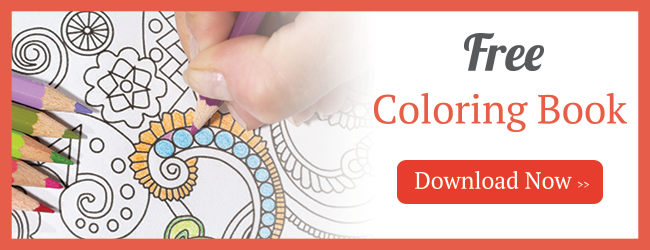Five Seemed Too Stressful!
“If you trade your authenticity for safety, you may experience the following: anxiety, depression, eating disorders, addiction, rage, blame, resentment, and inexplicable grief.â€
-Brene Brown
Whyyyyyyyy???? You feel anxious, and the more you try to move past it the more you seem to feed the fear. Are you going crazy, or is anxiety just one more symptom of menopause for which you aren’t prepared? The answer is maybe.
Menopause is a natural transition, but there’s a bajillion ways of experiencing what’s natural for you based on genetics, environmental influences, diet, attitude, and hormones.
Some women struggle with the bridge between who they were and who they are becoming. One woman I spoke with said, “I no longer look on the outside the way I feel on the inside, and I hate that!” Others have shared marital rifts because they no longer want to stay in their 24/7-caregiving roles. “I figure it’s finally time for me! I don’t want to stay home doing the cooking and cleaning after a full day of work, and my husband isn’t happy. He wants things to stay as they were.”
When you consider all the changes that happen during midlife: physical, emotional, hormonal, and identity, is it any wonder anxiety might pay a visit? First, let’s get a definition for anxiety to see if it fits with how you’re feeling.
Defining Anxiety
According to the book, Alternative Medicine: The Definitive Guide (Celestial Arts 2002), “Anxiety is a sense of fear and, in some cases, a feeling of impending doom.” Okay, that doesn’t sound pleasant. What are some symptoms?
Again, from Alternative Medicine: The Definitive Guide, “Anxiety is an emotion that may feature excessive worry, sleep disturbances, shakiness, fear of being alone or in public places, impatience, easy distraction, and great apprehension concerning the welfare of loved ones. Physical symptoms include racing pulse, heart palpitations, shortness or rapidity of breath, sweating, dry mouth, numbness and tingling of hands and feet or cold/clammy hands, lightheadedness or dizziness, fatigue, trembling, indigestion, and diarrhea.” (Page 990)
Consider Natural Remedies
Now that you have an idea of what it is, what are some things you can do to quash anxiety? My best advice is to talk with a practitioner you trust with your health and wellbeing. Let him or her know you are experiencing menopausal and anxiety symptoms, and ask what integrative approaches you may safely follow. Here are four and ½ to consider:
-
Bach Flower Rescue Remedy
Rescue Remedy is a Bach Flower blend of five flowers:
- Impatiens: For those who act and think quickly, and have no patience for what they see as the slowness of others. They often prefer to work alone. Teaches empathy and understanding of and patience with others. We’ve found it very fast-acting in alleviating an impatient attitude and lowering stress.
- Star of Bethlehem: For trauma and shock, whether experienced recently or in the past. Teaches the ability to recover from traumas and to integrate them into the present life.
- Cherry Plum: For those who fear losing control of their thoughts and actions and doing things they know are bad for them or which they consider wrong. Teaches trust in one’s spontaneous wisdom and the courage to follow one’s path.
- Rock Rose: For situations in which one experiences panic or terror.
- Clematis: For those who find their lives unhappy and withdraw into fantasy worlds. They are ungrounded and indifferent to the details of everyday life. Teaches one to establish a bridge between the physical world and the world of ideas; may foster great creativity. Is also used to bring clarity and alertness to the present moment.
- Rescue Remedy:Â Comes in several forms including spray, drops, and gum. I used to carry Rescue Remedy drops in my purse while taking college courses. A big presentation or a daunting exam? I’d pop a drop, breathe deep, and relax into my task.
-
Valerian Root
Valerian Root is a mild natural tranquilizer and is widely available as a supplement. Dr. Laura E. Corio (The Change Before the Change, Bantam Books, 2002) recommends 150 – 300mg taken 30 minutes before bedtime.
-
California Poppy
California poppy, a nervine relaxant, is a herb that does not cause addiction like the opium poppy. According to Dr. Tieraona Low Dog in her book, Healthy at Home: Get Well and Stay Well Without Prescriptions, National Geographic Society, 2014), “California Poppy is my go-to herb for those who are stressed-out, depressed, and cannot sleep because of pain.” One source for California Poppy tea.

-
The Lion Pose
Susun S. Weed suggests the lion pose when anxiety is about to get the best of you.”Open your mouth very wide; even wider! Stick your tongue out; even further. Open your eyes really wide; bigger. Rotate eyes left, then right. Breathe deeply and exhale audibly, expelling breath through mouth. Relax. Do this up to ten times. Keep the shoulders and the forehead relaxed. This pose unblocks the throat, releases facial tension, relaxes the breathing muscles, and relieves anxiety.” (New Menopausal Years The Wise Woman Way, Ash Tree Publishing, 2002)
-
Well 4 ½
This isn’t a herb or exercise. The following is a powerful way to think about the value of anxiety. Once again this is from Susun S. Weed:”Have you noticed?” whispers Grandmother Growth. “Your hot flashes and menstrual irregularities disrupt your normal patterns, make openings for your buried fears to emerge. Welcome these fears; they bring memories. Memories of childhood, memories of other lives. Often these memories find easiest access to your consciousness through fear. If you reject your fear, it will immobilize you, shorten your breath, leave you speechless, and dim your full delight in life.
Approach with curiosity; let your fear bring you gifts of self-awareness. (Note how dilated the pupils become in fear. Anxious eyes take in everything.) Hold my hand. Say ‘I’m afraid.’ And take a step forward.” (New Menopausal Years The Wise Woman Way, Ash Tree Publishing, 2002)

